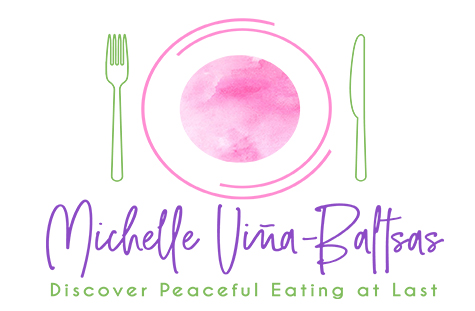Photo by Drop the Label Movement on Unsplash
As I mentioned in last week's message, as we return to "normalcy" let's all remember that it's natural to be a little anxious if we haven't done something for a while. I'm sure many of you have seen the harmful memes, heard jokes/commentary on TV, radio, social media, etc. about COVID weight gain. Even with the most pristine newsfeed and careful curating of friends, etc., this kind of talk is hard to escape.
What's worse, is that because our culture is so obsessed with weight and sees weight gain as something "bad", feeling neutral can be challenging even if you've been traveling in the non-diet circles for a while.
In full transparency, I know that I likely gained weight during this pandemic. It's possible that my weight just shifted because I wasn't doing as much cardio as my body is used to, but nonetheless, my body is different. I'm honestly not upset about this, but I also acknowledge that I'm not in a larger body so I do carry some privilege.
We cannot hear this enough; it's been a tough year. While we can say that, I'm not sure that we all take the time to reflect on exactly how this translates in terms of our eating, movement, and body image. Albeit sometimes painful, reflection can help us to process what has happened and, in this case, hopefully, reduce the sense of blame that so many are feeling around any possible weight gain. As a reminder, we never need an excuse, nor do we need to feel bad about weight gain despite what our culture tells us.
This is a brief summary of the profound and unwelcome changes that happened this year. While I realize that not everyone may have experienced these things personally, even those of us who didn't experience all these things still heard or read about them on the news or had someone close or at a distance who experienced them and that is very draining too. I know this is especially true for those of us who are more empathic. Here goes:
Reporting to work in unsafe and unsupportive environments
Homeschooling children or grandchildren while managing their own work schedule
Job loss or a reduction in hours
Social lives halted including major celebrations like births, weddings, graduations, etc.
Inability to mourn those who have passed with proper wakes and burials
No in-person religious services (at least for a long period of time)
Fear over the loss of loved ones or fear of loved ones contracting COVID
Loss or difficulty in accessing coping mechanisms and hobbies that support your mental health (i.e. gym, movies, restaurants, museums, etc.)
Profound social unrest in our country, especially in the LGBTQ+ and BIPOC communities
Political strife and a national election that rocked our nation
I don't know about you, but when I read this list and reflect on each bullet point, I feel it in my body and...
I remember the fear.
I remember the worry.
I remember the loss.
However, I also feel...
Gratitude
Relief
Hope
While my objective is not to tell you how to feel, I do hope that my words helped to reframe this year so that if you've gained weight, you can take the focus off that, and instead think about what your body has endured this past year.
That is how we can shift into gratitude that we're still on earth, have relief that we're nearing the end of it while having hope for what lies ahead.
You don’t need to feel bad about your body, your weight, age, etc. The world needs you as you are! Need some support help with this? Click the button below to see how some coaching tools can help ease your journey.





